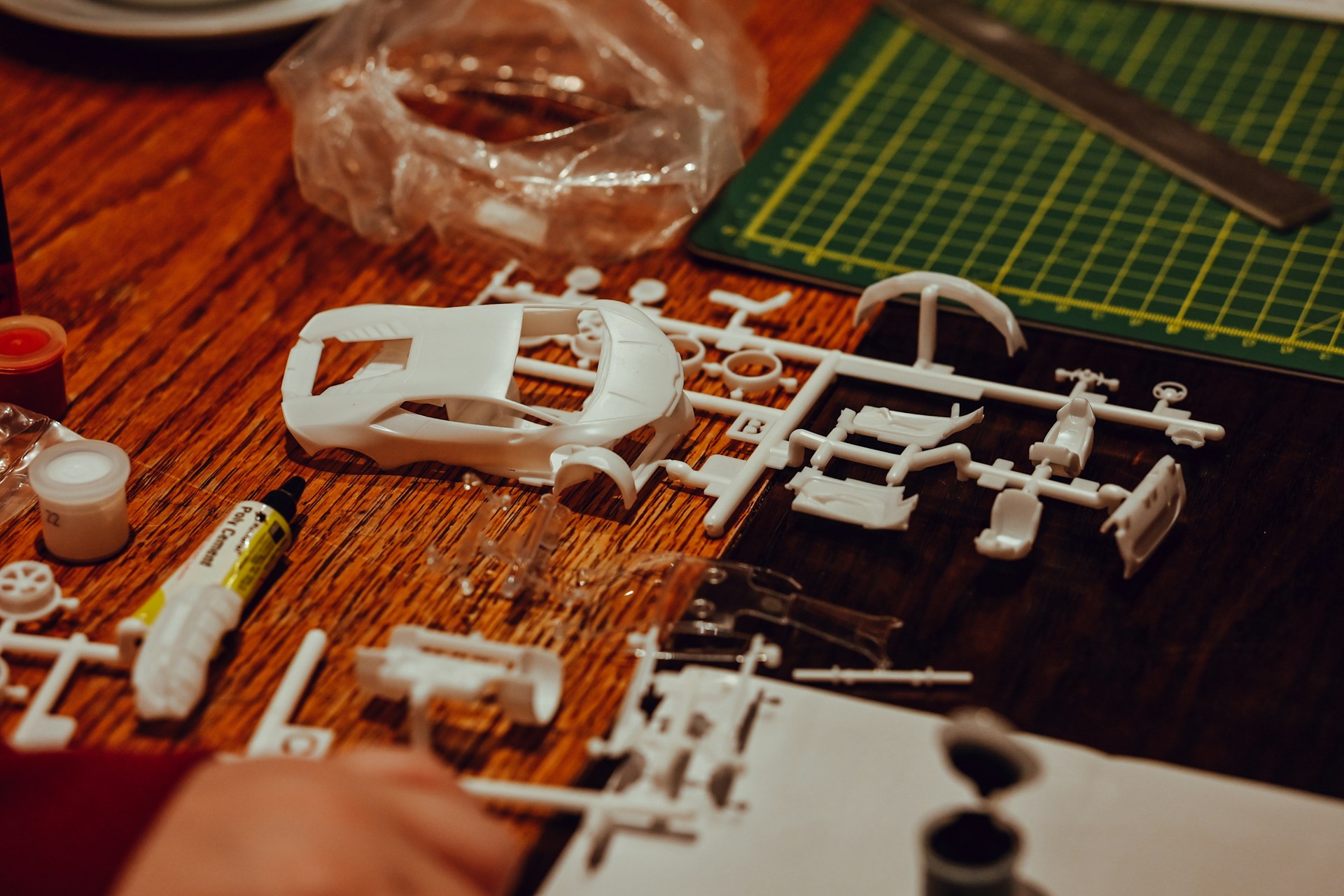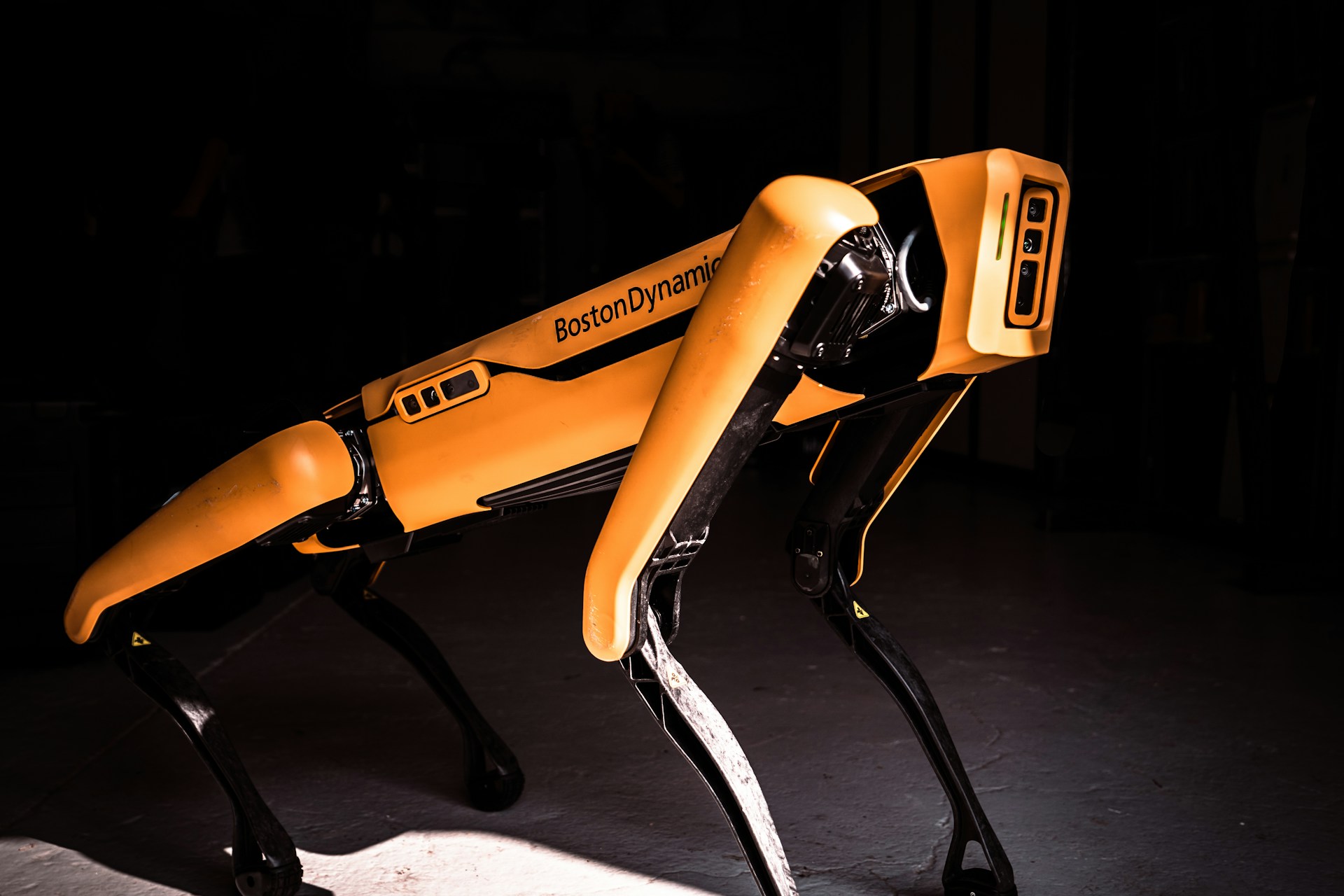
How to Become a Robotics Technician
September 24, 2020 - Emily Newton
Revolutionized is reader-supported. When you buy through links on our site, we may earn an affiliate commission. Learn more here.
Robotics technicians will be crucial in the changing industrial and technology landscape. Automation has become a cornerstone of modern industry, manufacturing, and business over recent years. Skilled, knowledgeable technicians are needed to install and maintain the robots that make automation possible.
There are more than 2.4 million industrial robots in the world today, not even factoring in commercial robots. There has never been a better time to pursue a career in robot technology. In fact, the industrial robotics market is expected to grow to over $81 billion by 2028. This guide will cover everything you need to know about how to become a robotics technician and become a part of the robotics revolution.
What Does a Robotics Technician Do?
Robotics technicians and robotics engineers are similar, but with some key differences. A robotics engineer takes care of the design and development of robots. Technicians, on the other hand, focus on keeping robots in good working order, repairing and maintaining them. Robotics engineers may need more education than robotics technicians, as well.
If you are interested in designing robots, definitely go the route of a robotics engineer. Robotics technicians and automation technicians focus on installing and maintaining robots, not designing or developing them. The robots are already a finished product when they get to the robotics technician. Robotics technicians are people who are good at troubleshooting, understand electronic and mechanical systems, and enjoy working with their hands.
Usually, a robotics or automation technician will be employed by a company that uses automation and needs an expert on hand to maintain the robots and automation systems. In contrast, a robotics engineer will typically work for a robotics firm, company, or developer, although plenty of businesses also want a dedicated robotics engineer on their team. Robotics and automation technicians may be employed by robotics developers, as well.
You could make a great robotics or automation technician if you enjoy working with robots and electronics but aren’t necessarily interested in designing them from scratch. Robotics technicians earn a median salary of $56,740, which is almost $20,000 more than the national average. If all of that sounds like something you’d like to do, here’s how to get started.
Getting the Right Education
Robotics technicians jobs are a fantastic option today, especially compared to more advanced engineering careers. Industry 4.0 is changing the job landscape, making more entry-level and hourly jobs technical rather than merely physical labor. This is creating a critical technical skills gap, with many employers in need of people who are not necessarily high-level engineers but do have extensive technical knowledge and expertise. This valuable niche is where robotics and automation technicians are.
You don’t need to spend hundreds of thousands of dollars on a lengthy four-year degree to be a robotics or automation technician. All you need is an interest in robot technology and an associate’s degree, such as as two-year program at a technical or trade school. This makes robotics technician jobs much more accessible and approachable than engineering. Plus, as mentioned above, there is a major and growing need for people in this technical skills niche.
When looking for a degree program, keep your eye out for programs that are related to robot technology. Not all schools will offer a specific robotics technician program, but there are some very similar programs that will give you the necessary set of training and skills. Similar programs to look out for include robotics technology, automation engineering, and electromechanical, instrumentation, and maintenance technologies.
Try to find a degree program with plenty of opportunities for hands-on training. Assistance finding jobs and internships is also a plus. Don’t be afraid to ask the faculty about their experience, as well. There may be an instructor with experience in a specific niche you’re interested in. Professors, mentors, and instructors can be a great way to make career connections and expand your skills in robotics.
Skills to Acquire
In terms of skills and coursework, a good robotics or automation technician program will emphasize learning about mechanical systems, electronics, troubleshooting, the Internet of Things, automation technologies, and even computer programming. By the end of your degree program, you should be familiar with a variety of industrial robots and commonly used industrial robotics and automation software programs. You should be able to think critically and problem solve with complex mechanical systems. You should also be able to communicate well with others, including people with less technical knowledge.
Since you’re going to be working with robots, it will be helpful to know some basic things about engineering. You should have a strong grasp of things like circuitry and coding in a variety of common languages, such as C/C++ and Python. Robotics technicians are needed to work with every type of robot out there. So, the more skills you acquire, the more options you’ll have when you’re looking for your first robotics technician job.
Additionally, you may not be designing robots yourself, but it will be helpful to gain an understanding of robotics design notation and CAD. This will help you read and understand robots’ manuals and systems, which can come in handy when conducting repairs and installation.
You’ll acquire a lot of these skills through your education, but it doesn’t hurt to look further. If you can get involved in a local robotics group or a similar entry-level job, it will help. You may even be able to find an internship that will give you some needed experience.
Finding a Job as a Robotics or Automation Technician
Over 380,000 new industrial robots were installed around the world in 2020 alone. That number is expected to rise to 500,000 new installations in 2024. That’s a lot of robots, and every single one will need someone to install, repair, and maintain them. It’s safe to say that robotics and automation technicians are extremely valuable in today’s automation-heavy workplace. This goes for virtually every industry, not just manufacturing and technical fields. In the years ahead, robots will be crucial in medicine, exploration, and education, as well.
If you go to a technical college or trade school, they may have a job placement program. That’s an excellent resource to have, so be sure to take advantage of it if it’s available to you. Career advisors at your school can help you polish your resume, practice interviewing, and connect with potential employers. Make sure to talk with professors, as well. Many technical and trade school instructors are industry veterans, so one of your teachers may be able to help you find the perfect first job in robot technology.
You can also use online job boards like Indeed or LinkedIn to search for robotics or automation technician roles. In-person job fairs are a great resource, as well. The recruiters at these events can often help you get off on the right foot in the application process and give you a good recommendation if you make an impressive first impression.
Consider joining a professional organization, as well, such as the IEEE Robotics and Automation Society. Groups like this often hold conferences and training programs that can be an invaluable resource for starting and building your career in robotics.
Advancing Your Career
After you’ve worked for a few years, you may want to pursue additional technical certifications that can help you gain access to new opportunities and higher paying roles. For instance, the National Institute for Certification in Engineering Technologies (NICET) offers certification programs that could be helpful for robotics technicians. Gaining certifications usually requires passing a written test, professional references, and some on-the-job training.
Once you are a more experienced robotics or automation technician, you can consider shifting to a career in teaching. Experts are needed to teach robotics and technical courses at businesses and schools all over the world. This need will only grow with the emergence of Industry 4.0. Teaching can be a very rewarding profession for experienced robotics technicians, although you may need to get a teaching certificate first. Alternatively, you could work as an independent technician, setting your own schedule, and negotiating your pay.
Additionally, you may come across opportunities to move up within a company if you show high aptitude in a certain area. For instance, you may be able to become a automation engineer, helping businesses design their automation systems. You could also become a consultant, someone who helps businesses choose the right robots and automation technologies and strategize how to use them. Hands-on technical experience can be extremely helpful in a job like this, even if you would not be doing actual robotics technician duties.
Start Your Career in Robot Technology Today
There are a lot of exciting careers in robotics today and the field is only going to continue to grow in the years ahead. Pursuing a career as a technician or engineer could be a great fit if you like working with robots and electronics. The robotics industry has an extensive range of jobs and specialties to choose from and a great job outlook, so you won’t have to worry about finding work.
You’ll need to get the right training and experience to have a successful career as a robotics technician. Technical and trade schools will have the staff and expertise to give you all the tools and skills you need. Keep an eye out for internships and training programs to help you kickstart your career in robotics. Join the robotics revolution and help build the future by becoming a robotics technician today!
Featured Image Credit: Rob NREC / CC BY-SA via Wikimedia Commons
Revolutionized is reader-supported. When you buy through links on our site, we may earn an affiliate commission. Learn more here.
Author
Emily Newton
Emily Newton is a technology and industrial journalist and the Editor in Chief of Revolutionized. She manages the sites publishing schedule, SEO optimization and content strategy. Emily enjoys writing and researching articles about how technology is changing every industry. When she isn't working, Emily enjoys playing video games or curling up with a good book.







